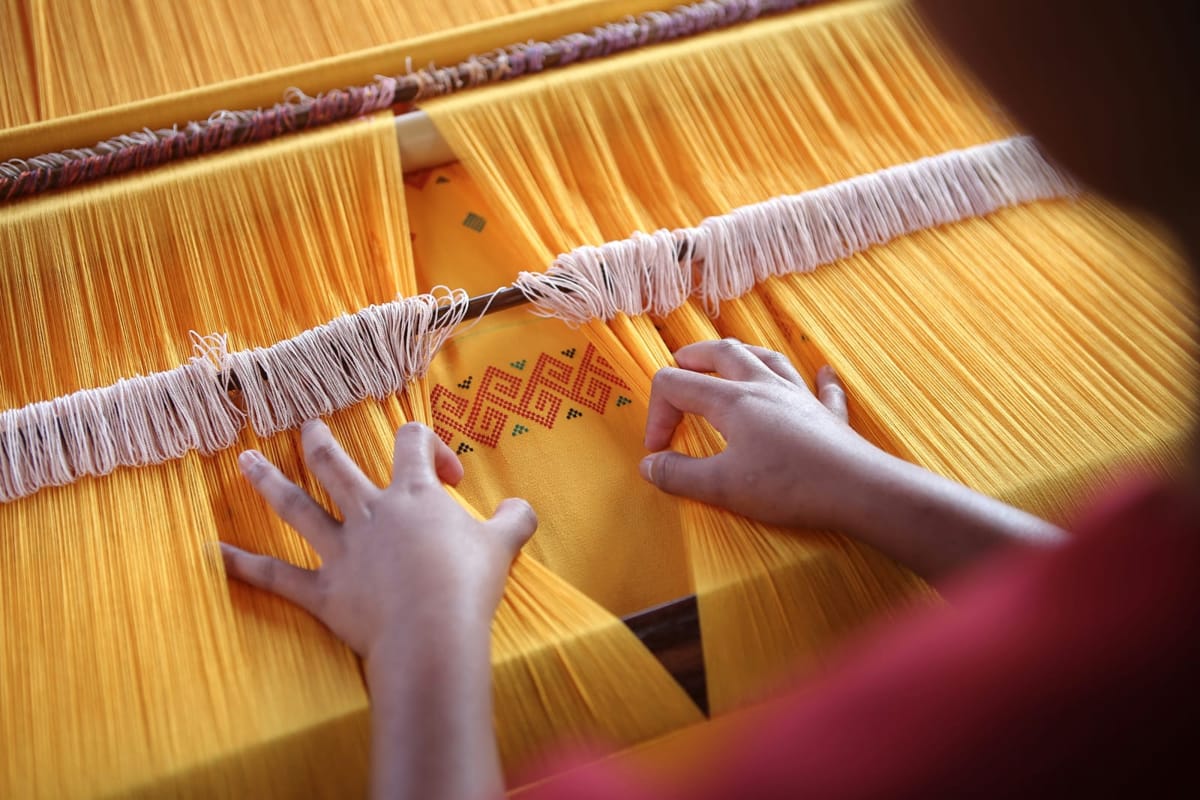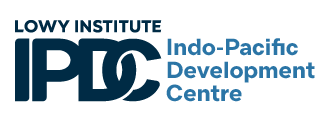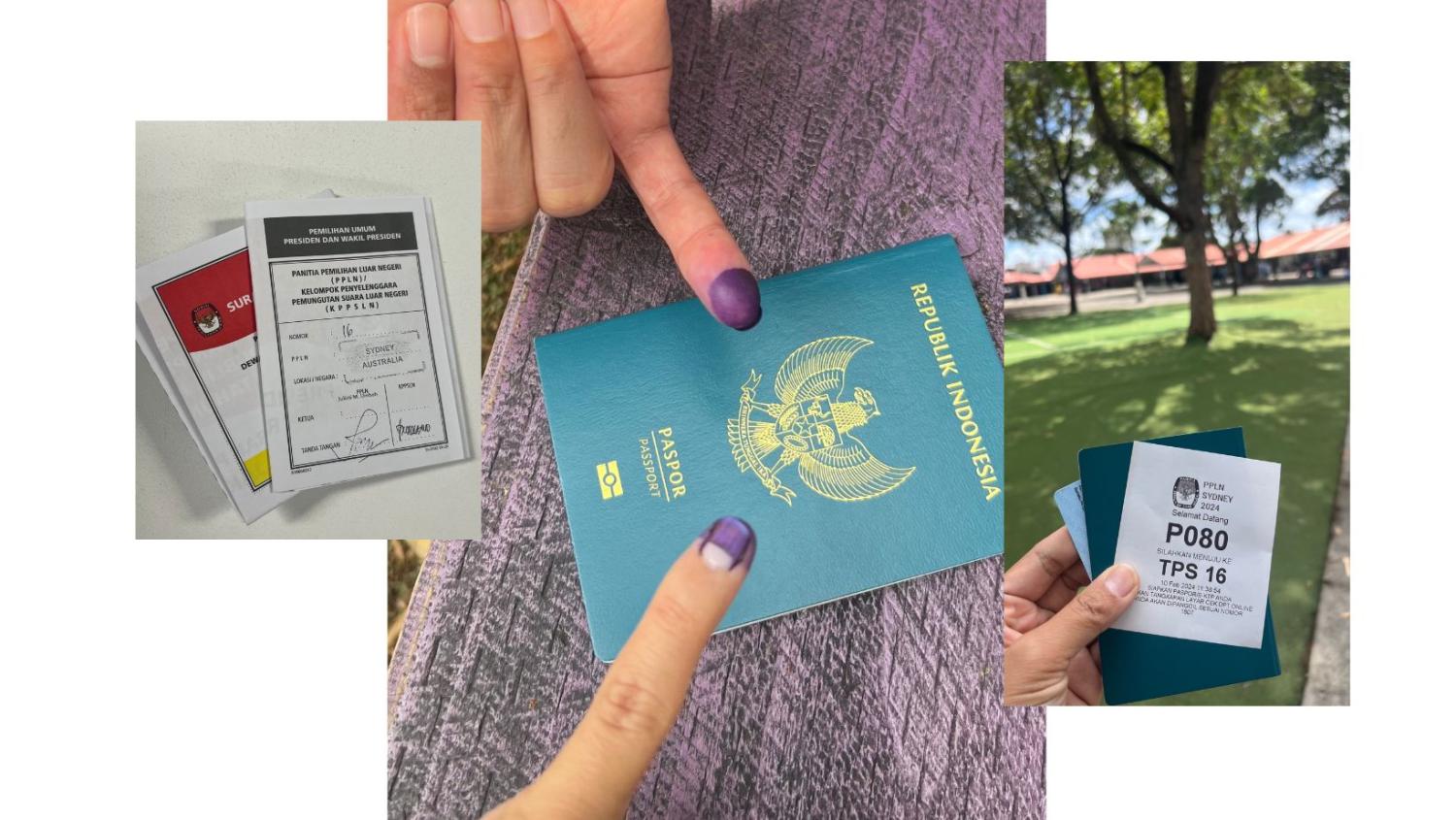Millions of Indonesians are heading to the polls today to choose their next leader, and those residing in Australia have already delivered their democratic right. About 35,000 Indonesians in Australia are registered to vote and last Saturday had the chance to cast their ballots. Admittedly, it’s a tiny proportion of an estimated 200 million voters back home, but this participation in the democratic process is nonetheless important, especially with two main issues that resonate deeply with many in the diaspora: dual citizenship and Australia-Indonesia relations.
In Sydney, where I live, casting my ballot was quick and easy. At Maroubra Junction Public School in the city’s east, it took just 20 minutes. The absence of campaign posters at polling stations was unusual, compared to the visual assault of party logos and smiling candidate photos when Australian’s line up at elections, but the setting allowed voters to focus on casting their ballots in an impartial setting. Two election sheets were presented, one for selecting the president and vice president, another for the House of Representatives. At the end, a fingertip stained with blue ink served as a visible mark to indicate their successful participation in the democratic exercise.
But it would be wrong to think this a dull affair. Indonesians are proud of their democracy, allowing that, as Lowy polling has shown, some Australians have been slow to understand. Electoral activities in Sydney included a bustling bazaar with music and tempting Indonesian foods – though no democracy sausages. Beyond nationality, the festival extended its arms to Indonesians with Australian partners or from other countries, fostering cross-cultural connections and promoting harmony within the diverse community.
Voters I spoke to were reluctant to disclose their electoral preferences, which underscores a cultural nuance valuing the privacy of individual political choices. This reluctance reflects a shared belief among voters that whoever is elected leader will possess the qualities needed to steer Indonesia toward greater prosperity.
People were more forthcoming about the key issues swaying their votes. For most I spoke to, the election is not just about the political future of the nation, but a litmus test for the evolving dynamics of citizenship and belonging.

For those living abroad, the choice to hold dual citizenship has become a key focus, revolving around the broader question of identity and allegiance. Indonesia currently upholds a single citizenship policy and the expressed hope indicates a desire for a more flexible approach. Many in the diaspora community regret that numerous Indonesians, driven by work commitments or visa convenience, are compelled to relinquish their Indonesian citizenship. Despite a deep-rooted love for their homeland, practical constraints force them to make this decision. A concern is also evident about the potential loss of these talented individuals and its impact on Indonesia's future.
Advocates believe a policy change could maintain ties with the diaspora and leverage their talents for the nation’s benefit. Although the proposal for dual citizenship in Indonesia was discussed in 2014, it has not gained priority on the national agenda in Jakarta. The expectation now lies with the incoming 2024 cabinet.
The optimistic view of relations between Indonesia and Australia is shared among Indonesian residents in Sydney. There’s notable enthusiasm about the improved processing of Australian tourist visas, with a significant reduction from one to two months to just three days this year.
The hope is that the new leadership in Indonesia will continue to strengthen this positive momentum in relations with Australia. If the mood around the polling booth was any indication, the Indonesian community in Sydney seems optimistic about developments in diplomatic relations between the two nations in the coming years. The special Australia-ASEAN Summit next month, which will include a final visit to Australia by President Joko Widodo, will be another good test of how the ties are progressing.


